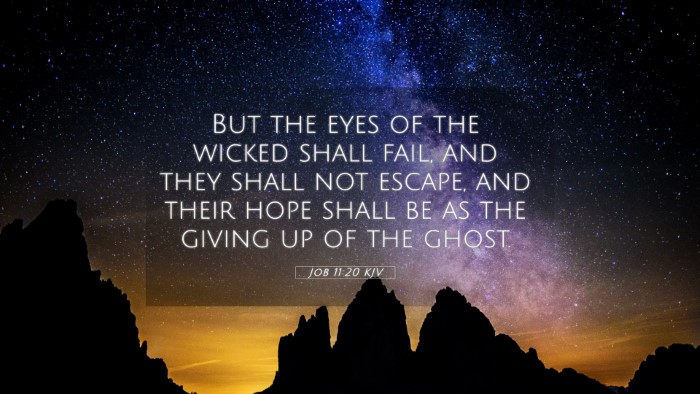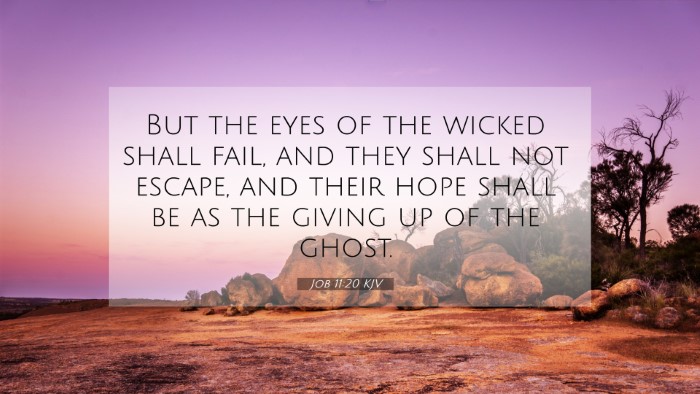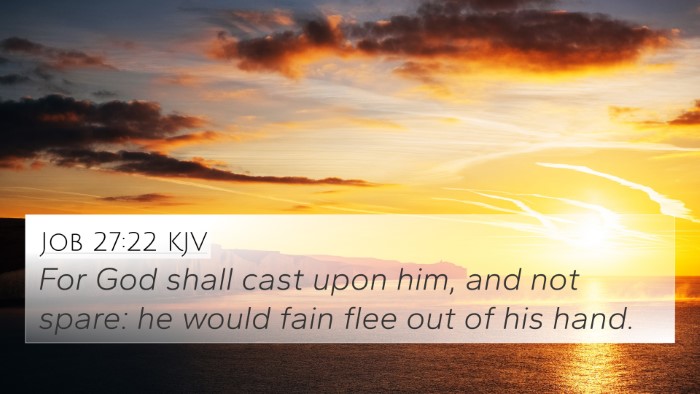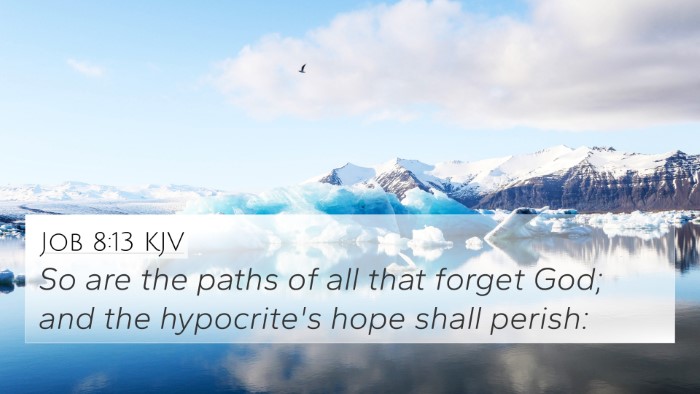Old Testament
Genesis Exodus Leviticus Numbers Deuteronomy Joshua Judges Ruth 1 Samuel 2 Samuel 1 Kings 2 Kings 1 Chronicles 2 Chronicles Ezra Nehemiah Esther Job Psalms Proverbs Ecclesiastes Song of Solomon Isaiah Jeremiah Lamentations Ezekiel Daniel Hosea Joel Amos Obadiah Jonah Micah Nahum Habakkuk Zephaniah Haggai Zechariah MalachiJob 11:20 Similar Verses
Job 11:20 Cross References
But the eyes of the wicked shall fail, and they shall not escape, and their hope shall be as the giving up of the ghost.
Uncover the Rich Themes and Topics of This Bible Verse
Listed below are the Bible themes associated with Job 11:20. We invite you to explore each theme to gain deeper insights into the Scriptures.
Job 11:20 Cross Reference Verses
This section features a detailed cross-reference designed to enrich your understanding of the Scriptures. Below, you will find carefully selected verses that echo the themes and teachings related to Job 11:20 KJV. Click on any image to explore detailed analyses of related Bible verses and uncover deeper theological insights.
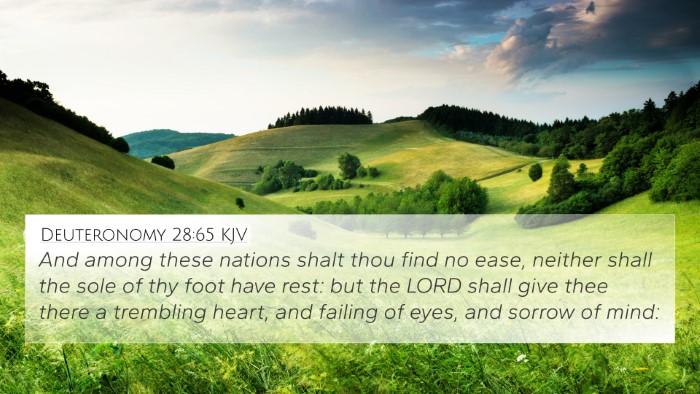
Deuteronomy 28:65 (KJV) »
And among these nations shalt thou find no ease, neither shall the sole of thy foot have rest: but the LORD shall give thee there a trembling heart, and failing of eyes, and sorrow of mind:
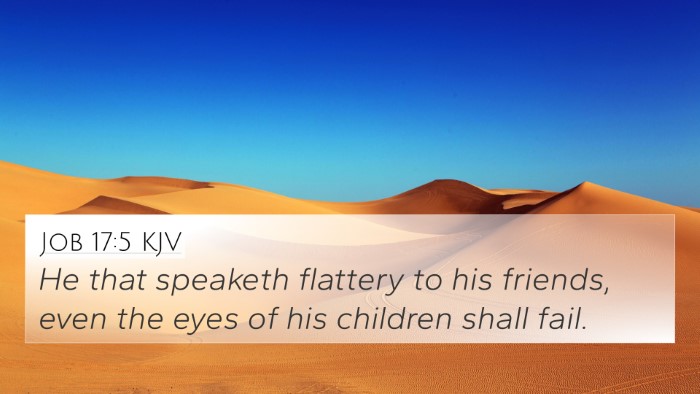
Job 17:5 (KJV) »
He that speaketh flattery to his friends, even the eyes of his children shall fail.
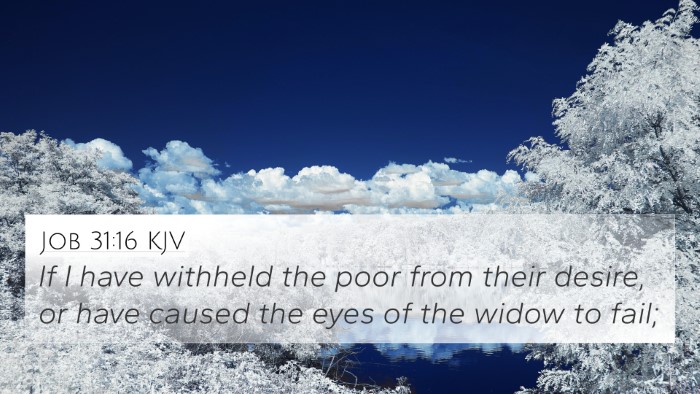
Job 31:16 (KJV) »
If I have withheld the poor from their desire, or have caused the eyes of the widow to fail;

Leviticus 26:16 (KJV) »
I also will do this unto you; I will even appoint over you terror, consumption, and the burning ague, that shall consume the eyes, and cause sorrow of heart: and ye shall sow your seed in vain, for your enemies shall eat it.
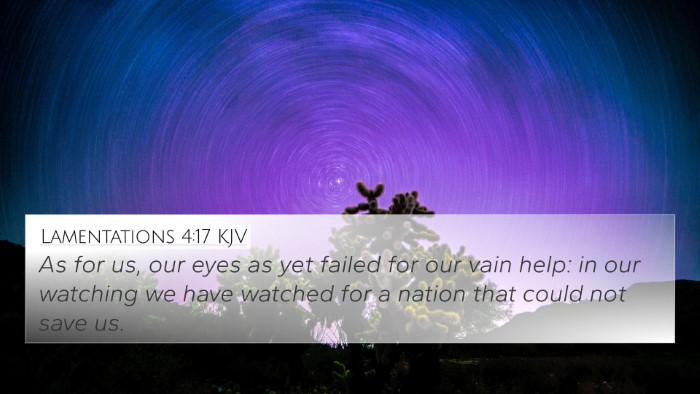
Lamentations 4:17 (KJV) »
As for us, our eyes as yet failed for our vain help: in our watching we have watched for a nation that could not save us.
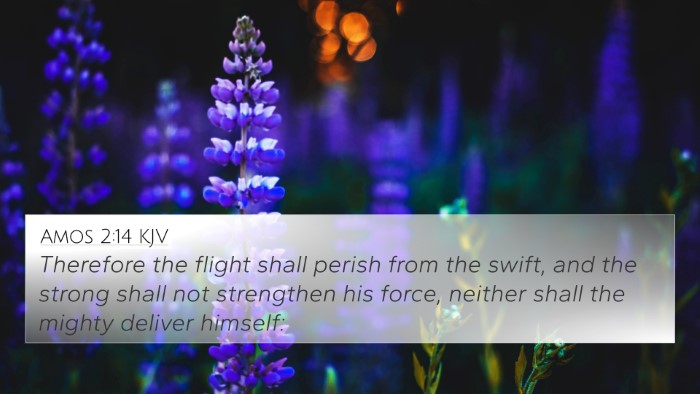
Amos 2:14 (KJV) »
Therefore the flight shall perish from the swift, and the strong shall not strengthen his force, neither shall the mighty deliver himself:
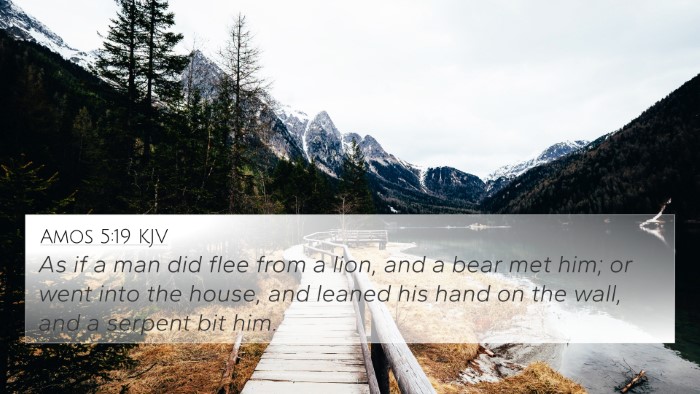
Amos 5:19 (KJV) »
As if a man did flee from a lion, and a bear met him; or went into the house, and leaned his hand on the wall, and a serpent bit him.
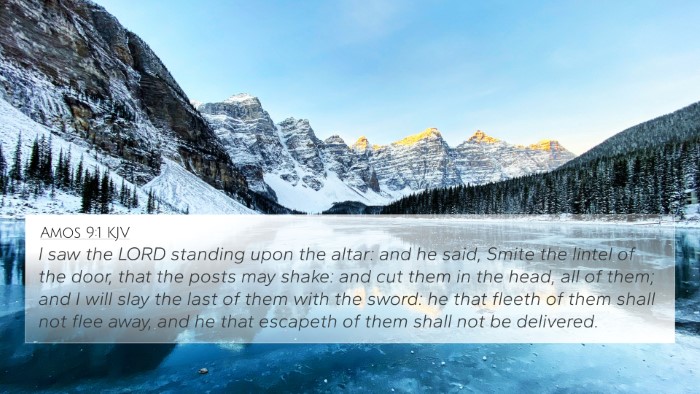
Amos 9:1 (KJV) »
I saw the LORD standing upon the altar: and he said, Smite the lintel of the door, that the posts may shake: and cut them in the head, all of them; and I will slay the last of them with the sword: he that fleeth of them shall not flee away, and he that escapeth of them shall not be delivered.
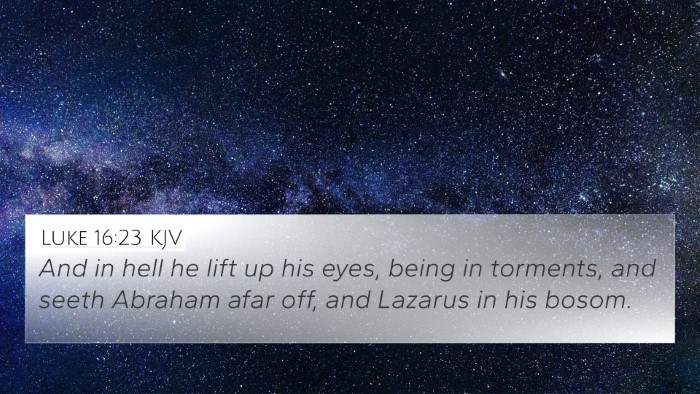
Luke 16:23 (KJV) »
And in hell he lift up his eyes, being in torments, and seeth Abraham afar off, and Lazarus in his bosom.
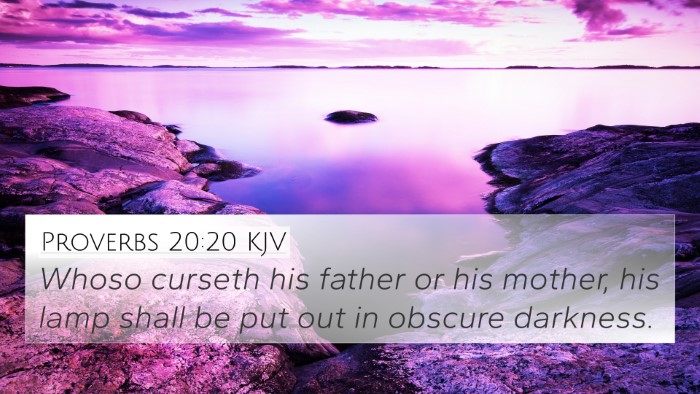
Proverbs 20:20 (KJV) »
Whoso curseth his father or his mother, his lamp shall be put out in obscure darkness.
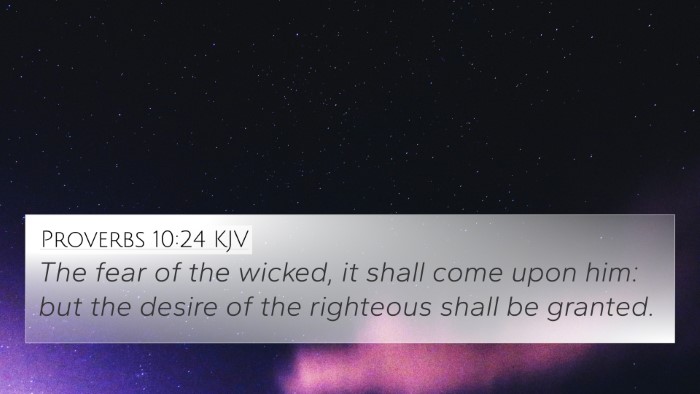
Proverbs 10:24 (KJV) »
The fear of the wicked, it shall come upon him: but the desire of the righteous shall be granted.
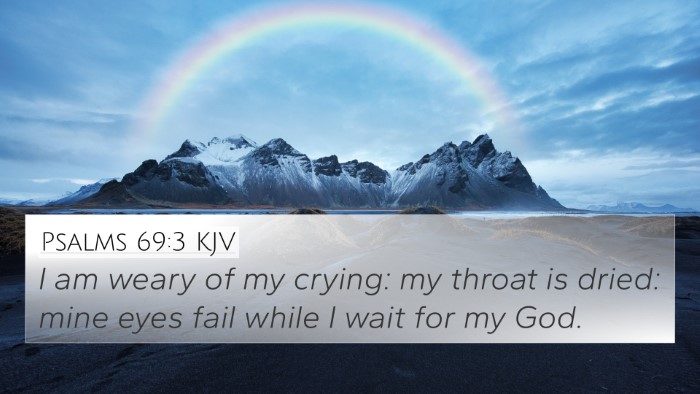
Psalms 69:3 (KJV) »
I am weary of my crying: my throat is dried: mine eyes fail while I wait for my God.
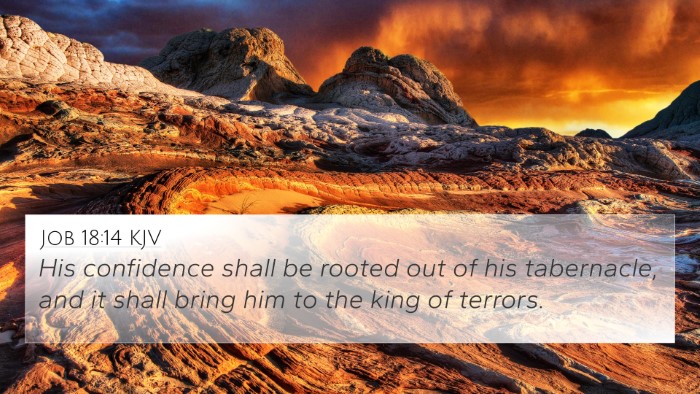
Job 18:14 (KJV) »
His confidence shall be rooted out of his tabernacle, and it shall bring him to the king of terrors.
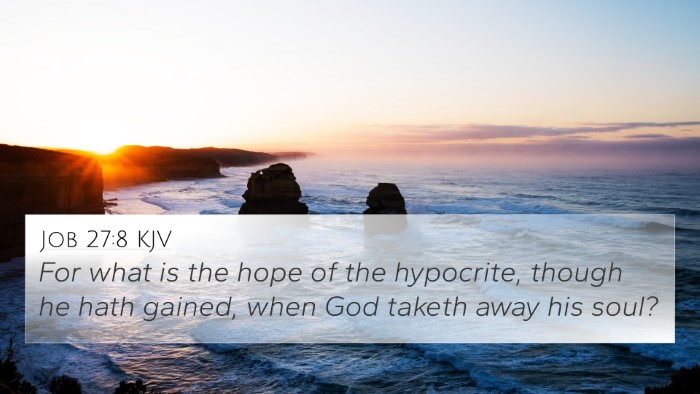
Job 27:8 (KJV) »
For what is the hope of the hypocrite, though he hath gained, when God taketh away his soul?
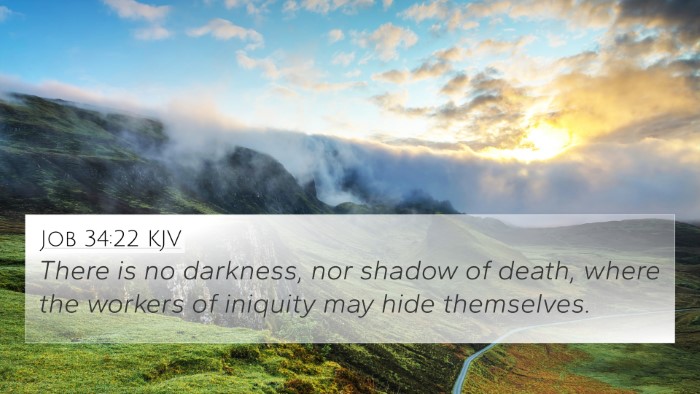
Job 34:22 (KJV) »
There is no darkness, nor shadow of death, where the workers of iniquity may hide themselves.

Hebrews 2:3 (KJV) »
How shall we escape, if we neglect so great salvation; which at the first began to be spoken by the Lord, and was confirmed unto us by them that heard him;
Job 11:20 Verse Analysis and Similar Verses
Understanding Job 11:20
Job 11:20 states, "But the eyes of the wicked will fail, and escape will elude them; their hope will become a dying gasp." This verse presents a grim portrayal of the fate awaiting those who are wicked, embodying a theme of despair in the absence of divine favor.
Overview and Meaning
In this verse, Zophar the Naamathite is speaking, expressing a stern warning about the consequences of wickedness. The verse serves as a culmination of Zophar's argument regarding Job’s plight, which he attributes to Job's own sinful actions. This commentary provides a deep dive into the implications of this passage, combining insights from Matthew Henry, Albert Barnes, and Adam Clarke.
Commentary Insights
- Matthew Henry: He interprets this verse as a warning that the wicked will ultimately face failure and despair, emphasizing that their hopes will not only be unfulfilled but will lead to extreme despondency.
- Albert Barnes: Barnes highlights that the 'eyes of the wicked' refer to their expectations and aspirations, which will ultimately lead to disappointment. He stresses that the loss of hope represents a significant spiritual decline.
- Adam Clarke: Clarke elaborates on the imagery of a 'dying gasp,' suggesting that the hope of the wicked is fragile and insubstantial, akin to the final breath before death, leaving them in complete hopelessness.
Thematic Connections
This verse is deeply thematic, connecting with several critical principles found within Scripture regarding sin, judgment, and hope. Below are some of the significant themes:
- Divine Justice: The verse reinforces the idea that divine justice will not be thwarted, and the wicked will receive their due.
- The Fragility of Hope: It presents a stark contrast between hope anchored in God versus the uncertain hopes of the wicked.
- Human Struggle: Job’s situation triggers a dialogue about suffering and divine retribution among the friends of Job.
Cross-References
Job 11:20 has several Bible cross-references that support its themes:
- Psalms 37:10-11: "For yet a little while, and the wicked shall not be. Indeed, you will look diligently for his place, but it shall be no more."
- Proverbs 10:28: "The hope of the righteous will be gladness, but the expectation of the wicked will perish."
- Proverbs 11:7: "When a wicked man dies, his expectation will perish, and the hope of the unjust perishes."
- Proverbs 13:12: "Hope deferred makes the heart sick, but desire fulfilled is a tree of life."
- Psalms 112:10: "The wicked will see it and be grieved; he will gnash his teeth and melt away; the desire of the wicked shall perish."
- Matthew 7:13-14: "Enter by the narrow gate; for wide is the gate and broad is the way that leads to destruction, and there are many who go in by it."
- Romans 2:6-8: "Who will render to each one according to his deeds: eternal life to those who by patient continuance in doing good seek for glory, honor, and immortality; but to those who are self-seeking and do not obey the truth, but obey unrighteousness—indignation and wrath."
Analytical Connections
This passage demonstrates strong connections between various scriptures, contributing to a comprehensive understanding of hope and despair. For instance:
- The juxtaposition of the righteous and wicked, observable in the Proverbs mentions, sheds light on the dire consequences of a life separated from God.
- The concept that hope can lead to decay as found in Proverbs correlates with the rhetoric in Job 11:20, where the hope of the wicked results in a dying gasp.
- By linking the heart's condition with the state of hope, the Psalms and Proverbs present a consistent Biblical narrative concerning the outcomes of one's spiritual choices.
Tools for Bible Cross-Referencing
To deepen understanding of Job 11:20 and explore its connections, consider utilizing:
- Bible concordance: Effective for finding verses related to a specific topic.
- Bible cross-reference guide: Helps in identifying verses that connect thematically.
- Cross-reference Bible study methods: Systems designed to explore interrelated scripture.
- Bible chain references: A method that allows readers to trace themes throughout the Bible.
- Comprehensive Bible cross-reference materials: Useful for sermon preparation or in-depth studies.
Conclusion
Job 11:20 serves as a powerful reminder of the ultimate fate of the wicked, contrasting it with the hope and security those in right standing with God can have. By employing cross-referencing, readers can better grasp the nuances of this verse in the broader Biblical narrative. The thematic connections and cross-references provide a rich framework for understanding the dynamics of divine justice, human despair, and the nature of hope.

